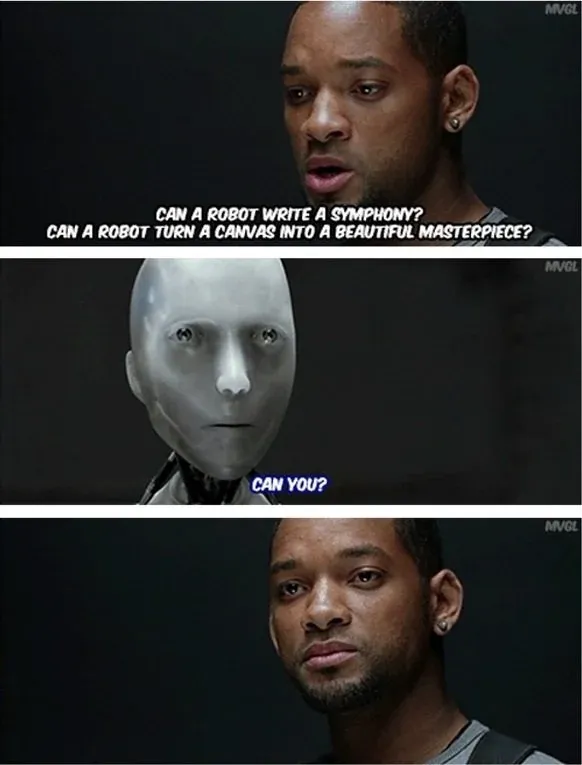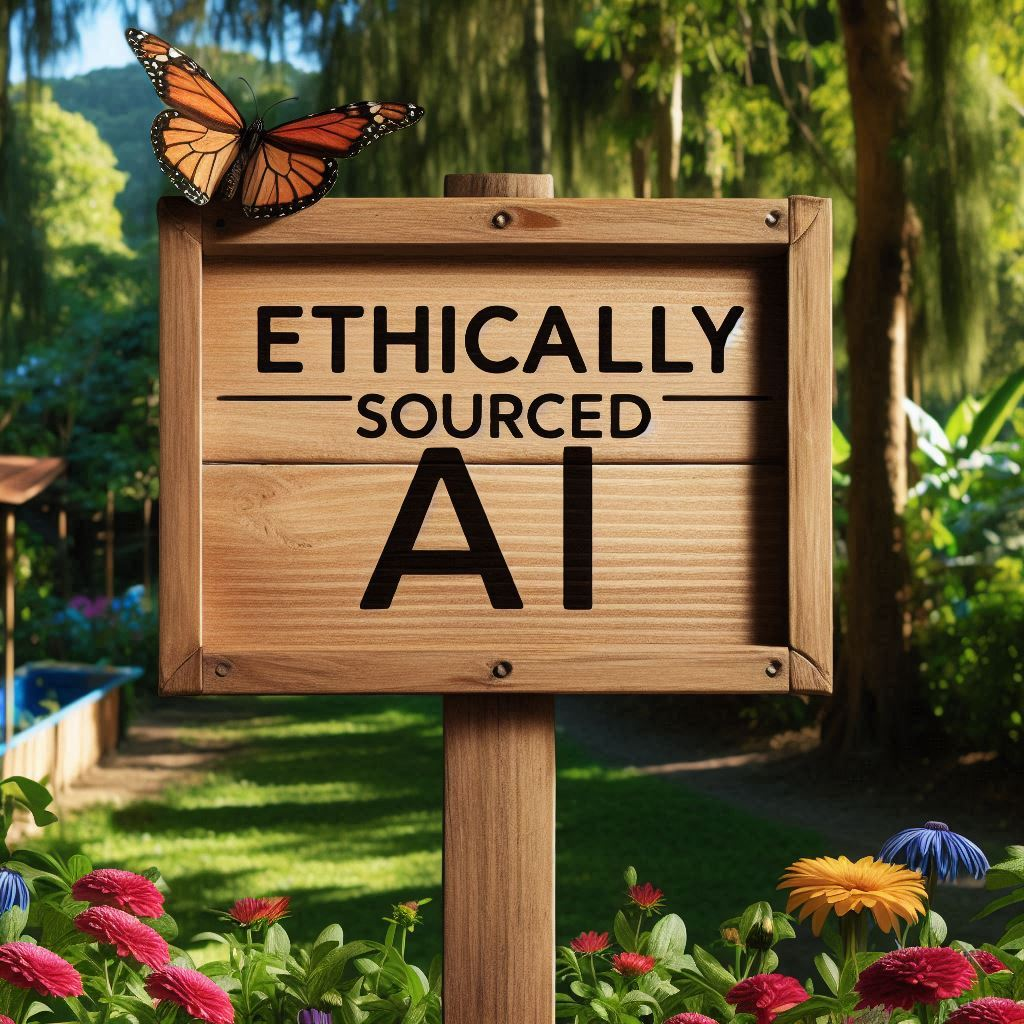Generative AI, Grammarly, and the Fall of NaNoWriMo

When did this:
I recently spoke with the CEO of a large energy company (that will remain nameless) about the value of generative AI in business. My opinions have always been very black and white: either generative AI is good, or it's the devil. After much discussion and learning about how AI is helping his business, we concluded that generative AI is a tool, and whether it is good or bad depends on who wields it.
Become less attractive than this:
During a recent conversation with the CEO of a major energy company (who prefers to remain anonymous), we delved into the topic of generative AI in business. My stance on this issue has always been clear-cut: generative AI is either a boon or a bane. However, after an in-depth discussion and gaining insights into how AI is revolutionizing his business, we reached a consensus. Generative AI is a tool, and the user determines its impact, whether positive or negative.
One is my voice. The other is not. The real question is: who are you here to listen to? Me? Or generative AI?
Or did I just make the case for generative AI being a better blog post writer than me?

Grammarly
For Business
At my previous job, I encouraged my team to use Grammarly whenever they were writing anything customer-facing, such as a response to a trouble ticket or a knowledge base. We even paid for the highest tier, which allowed me to set team-wide tone and grammar rules. Suddenly, the team had a little assistant reminding them to use friendly, informative language with correct spelling and grammar. We even used generative AI to have Grammarly write examples of difficult emails to customers.
For example:

Which produces:

As a tool, Grammarly gave us good jumping-off points and kept our responses between the rails. Nothing, and I mean nothing, is as important as having a clear, concise response with proper spelling and grammar. Even little things like not capitalizing greetings get under my skin. Grammarly takes of all of that.
For Marketing
I've been self-publishing books for twenty years, and I still know little about how to market them. Many authors are plagued with low self-esteem and self-doubt, which prevents them from ever claiming this book is awesome and you need to read it. I'm trying to get over that, but in the meantime, I'm using Grammarly, Copilot, and ChatGPT interchangeably to give me ideas about how to write marketing copy.
Step into the dark and thrilling world of Vise Manor, where cyberpunk meets murder mystery in an electrifying blend of futuristic technology and old-fashioned suspense. Follow the enigmatic protagonist as they navigate a maze of deception, betrayal, and danger in a world where nothing is as it seems. With its immersive world-building and gripping storytelling, Vise Manor is a must-read for fans of both the cyberpunk and mystery genres. Get your copy today and prepare to be captivated from the very first page!
That's all generative AI. It kinda sounds interesting, but is there really anything there? It's hard to say. Maybe marketing is about mass appeal and hooking people with language that "sounds right."
Mostly, I rely on generative AI to punch up my social media posts. Nothing says authentically connecting with your readers like a wall of auto-generated marketing-speak.
For Creative Writing

No. We do not use generative AI for creative writing. In any context. Ever. This is what got NaNoWriMo in trouble, but we'll get to that in a minute. What's important is that Grammarly can be disabled in certain programs, and unless you're running it at work, the first program you'll want to add to the block list is Microsoft Word.

If you've ever heard of the Dead Internet Theory, it's like that, but for stories. The last thing we need is to get into a situation where generative AI is writing all of our books... and then scraping those to produce more... over and over again, until it's just garbage.
Of course, some dissenters are even "proud" of not writing their own books, but I like to pretend they don't exist and that readers will see them for what they are.
NaNoWriMo
A Bold Statement
I haven't participated in NaNoWriMo in a long time, but I appreciate its role in helping newer authors find motivation through goal-setting and accountability. Thus, when it came out (seemingly) in favor of generative AI, I, like many authors, was stunned. In the since-updated post, NaNo wrote:
NaNoWriMo does not explicitly support any specific approach to writing, nor does it explicitly condemn any approach, including the use of AI.
But it was the following paragraph that seemed to rile people up the most:
We also want to be clear in our belief that the categorical condemnation of Artificial Intelligence has classist and ableist undertones, and that questions around the use of AI tie to questions around privilege.
This took me back to my conversation with that important CEO I mentioned earlier and my tendency to be black or white on every issue. Am I wrong to condemn everyone who uses generative AI to write a story? Does it affect me personally if someone publishes an entirely AI-generated novel?
That's actually not the problem.
If someone publishes AI garbage to Amazon, the market will either embrace it or reject it, and that has nothing to do with me publishing my own books. The problem comes when you ask the question: how is the AI being trained?
The Creepy Crawlers
Earlier this year, I switched my website to Ghost.org specifically because they provided a dead-easy way to hide my content behind a free paywall. Want to read my short stories? Just subscribe for free, and they're yours. Want to scrape them for use in your generative AI LLM? Sorry, we're closed. The generative AI landscape is quite foggy on this question, and it has authors on edge.
So it's not just that people are using it; it's that if generative AI is being trained on publicly available IP on the internet, then it is ethically wrong to use it to write stories.

The mere possibility of stealing from human artists doesn't sit right with most authors, myself included. All you have to do is spend ten minutes on Threads talking about AI, and you'll get a clear read of the room.
The Wise Man Remains Silent
The original post by NaNo references some kind of dust-up in their forums about AI, and from that, they decided to make a statement. But did they really need to? NaNo is about organizing a group write. What does it matter if someone is using generative AI? Because they'll be at the top of the charts? I've tried looking at it several ways, but I can't figure out why it matters.
Q: Can I use AI to write my NaNo novel?
A: Sure, I guess. If you call that writing.
Snarkiness is mine, but that's all that needs to be said. It's not that you're using generative AI to write stories, it's that you're using it at all.
After speaking so highly of Grammarly, I now have to ask: how are they training their AI?
Meanwhile, other companies are distancing themselves from NaNo, including my favorite writing program, Novlr.
Whatever your stance on AI, there is a civil way to have those conversations. To try and brand those who disagree with you as ableist, classist, and racist, shows a disregard for the values many in our community hold dear. We wanted to make clear that we don't share those positions at all. We exist to drive human creativity. We don't - and won't - build generative AI into Novlr.
You can read the full post here.
To Sum Up
As you can see, I'm on both sides of this issue. I find Grammarly essential to my professional career and book marketing. Yet, I find generative AI to be a cancer on all art forms (even the graphics I generated for this post).
"It's the opposite of art. It destroys art, it destroys souls."
- Oscar Martinez, Dunder Mifflin Paper Company
Am I sure Grammarly's generative AI is ethically sourced? No.
Will I keep using it? Yes.
Why? What is this, a deposition?!
I suppose I draw the line at art. A soulless, homogenized product is fine if you're emailing the shipping department about a missing RMA. I'd say the same applies to marketing copy on my Instagram account; it's inherently not real and, therefore, doesn't matter if it's artificial.
But I would not generate a novel, tell you I wrote it, or expect you to pay for it. I can write my own garbage, thank you very much. 🫠
We're approaching the point where companies must disclose more about how their large language models work and where they are sourced. Oz can't hide behind the curtain forever, not if he wants artists to use his generative AI product.
Further Reading

In an official statement, NaNoWriMo calls critics of AI ableist and classist.
by u/janukanu in nanowrimo





